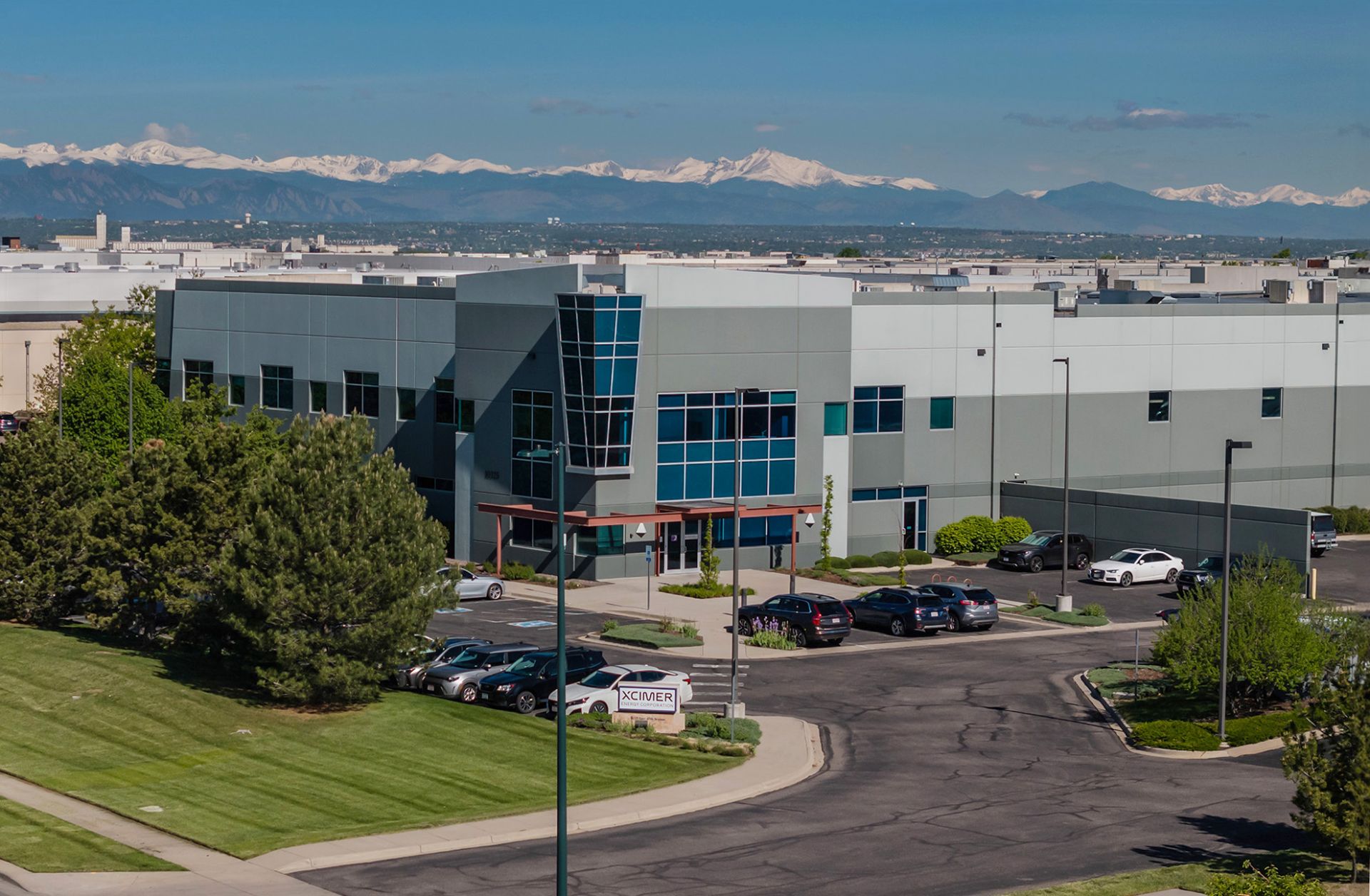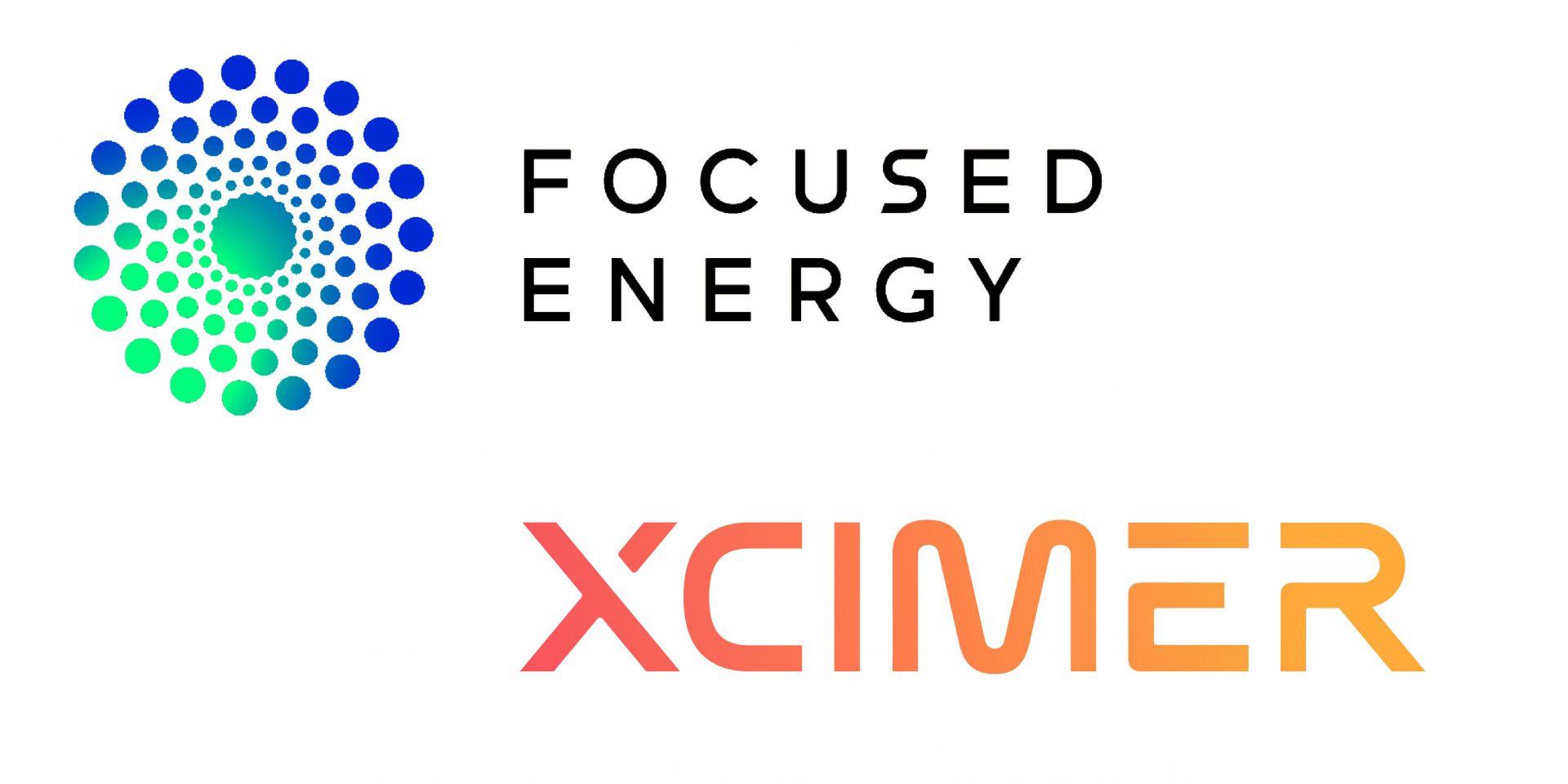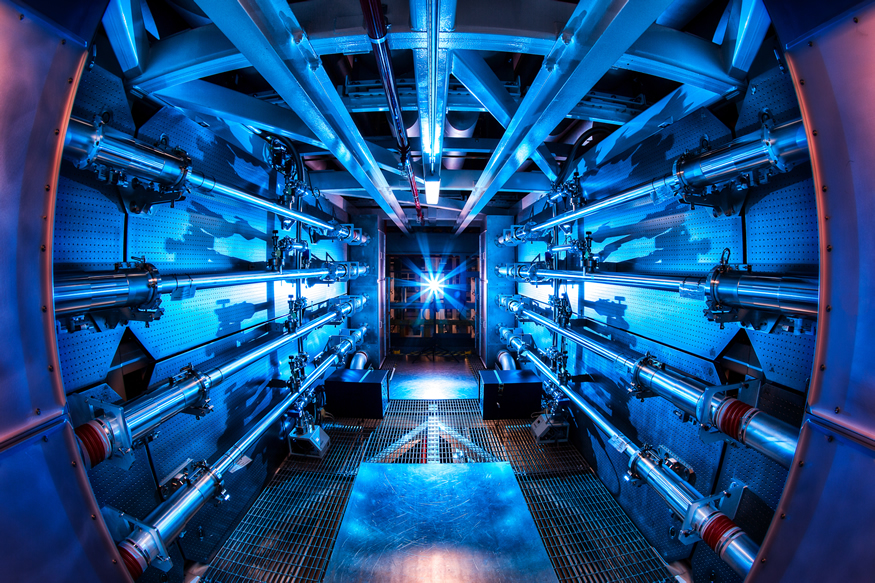Xcimer Energy’s headquarters in Denver, Colo. (Photo: Xcimer Energy)
Xcimer Energy announced June 4 that it has raised $100 million in Series A financing for a new facility in Denver, Colo., that will host a prototype laser system with “the world’s largest nonlinear optical pulse compression system.” As a private fusion developer, Xcimer wants to “extend the proven science of inertial fusion to industrial scale” with the help of that laser system and “key technologies and innovations from multiple fields.”
STARFIRE is the name of an inertial fusion energy hub led by Lawrence Livermore National Laboratory—one of three hubs announced in early December. (Image: LLNL)
The Department of Energy recently announced that it was establishing three inertial fusion energy (IFE) hubs and funding them with a total of $42 million over four years. The leaders of the three hubs selected by competitive peer review—Colorado State University, Lawrence Livermore National Laboratory, and the University of Rochester—all issued press releases touting the attributes and plans of their facilities and their research collaborators on the same day—December 7.
A view through the 20-cm disk amplifiers of the OMEGA laser at the University of Rochester’s Laboratory for Laser Energetics. (Photo: University of Rochester/J. Adam Fenster)
Proponents of inertial fusion energy celebrated in December 2022, when researchers at the National Ignition Facility at Lawrence Livermore National Laboratory achieved fusion ignition by subjecting a carefully crafted diamond cryogenic sphere containing frozen deuterium-tritium fuel to NIF’s laser energy. NIF has yet to repeat the feat, in part because that facility was not designed to produce fusion energy, and ignition requires near-perfect targets. For inertial fusion energy to serve as a reliable power source, it will require swift, reliable, and economic target production.
Energy secretary Jennifer Granholm addresses an audience of lab staff, dignitaries, and media at LLNL. (Photo: LLNL)
Lawrence Livermore National Laboratory hosted current and former staff, government officials, and media on May 8 to celebrate the lab’s achievement of fusion ignition at the National Ignition Facility (NIF) on December 5, 2022. Energy secretary Jennifer Granholm and undersecretary for nuclear security and National Nuclear Security Administration administrator Jill Hruby were in attendance, and Granholm took the opportunity to announce funding of up to $45 million to support inertial fusion energy (IFE) research and development. The Department of Energy’s Office of Science (DOE-SC) wants to establish multiple IFE Science and Technology Innovation Hubs (IFE S&T hubs), with total funding for 2023 of up to $9 million for projects lasting up to four years in duration.
April 26, 2023, 12:00PMEdited April 26, 2023, 12:00PMNuclear News LLNL design physicist Annie Kritcher is honored as one of the TIME100 Most Influential People. (Photo: Blaise Douros/LLNL)
Physicist Andrea “Annie” Kritcher’s dedication to fusion target design has earned her a spot on the TIME100 Most Influential People list for 2023. Today, Kritcher and 99 other individuals on that list—among them Elon Musk, King Charles, Judy Blume, Patrick Mahomes, Beyoncé, Lionel Messi, Janet Yellen, and MrBeast—are being honored at the TIME100 Summit and Gala at the Lincoln Center in New York City.
Nicholas Hawker of First Light Fusion and Ian Chapman of UKAEA. (Photo: UKAEA)
Ignition and net gain at Lawrence Livermore National Laboratory’s National Ignition Facility (NIF) in December 2022 focused global attention on the prospects of inertial fusion energy (IFE). First Light Fusion and the U.K. Atomic Energy Authority (UKAEA) acknowledged the achievement as they announced plans on January 25 to design and build a demonstration facility known as Machine 4 at UKAEA’s Culham Campus in Oxford, U.K., using First Light’s “projectile approach” to IFE. Construction is expected to begin in 2024, and operations are “likely to commence” in 2027.
A color-enhanced image of the inside of a NIF preamplifier support structure. (Image: LLNL/Damien Jemison)
On December 5, researchers at the National Ignition Facility (NIF) at Lawrence Livermore National Laboratory achieved fusion energy breakeven. It was a gain for stockpile stewardship that also—as headlines gushed prior to the Department of Energy’s December 13 announcement—boosted the prospects of inertial fusion energy (IFE). The timing of the landmark achievement may have been especially welcome to private fusion companies with inertial or hybrid magneto-inertial confinement concepts, because it occurred as the DOE was getting ready to consider applications for $50 million in funding for fusion pilot plant design work.




.jpg)




